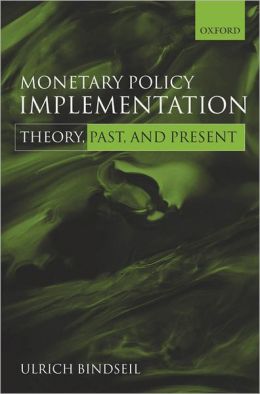As I mentioned in a previous
post, I will be doing a series of posts on issues surrounding monetary
policy implementation. I already broached
the concept of monetary policy implementation vs. strategy, an understanding of
which I think is critical for delving deeper into this topic, including what’s
contained within this post.
Below, I summarize Bindseil’s account of the history of the
debate surrounding the optimal approach to monetary policy implementation. Many
of the people and ideas contained within will be familiar to those interested
in this topic, but the historical arc along which they appear may be less widely known. Bindseil relies on
an extensive set of primary and secondary sources. However, these views are not
necessarily unique to Bindseil. I’d imagine Post-Keynesians would give similar
accounts, and likely have. I’d also emphasize at the outset that this is a 4
page summary of ~34 pages of Bindseil’s work. Bindseil obviously provides much more
argumentation, citation, and quotation than I do here. Moreover, this topic is
returned to throughout his ~250 page book.
